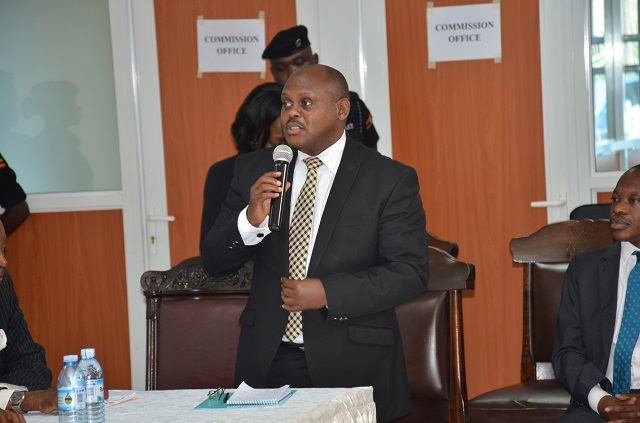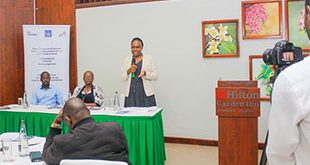
Kampala, Uganda | THE INDEPENDENT | The Local Government Finance Commission (LGFC) seeks to collect up to 1 trillion shillings in local revenue collections. The commission intends to hit this target by the 2025/26 financial year.
This ambitious goal was revealed by Isaac Musumba, the commission chairman, during its rebranding function. “This is not just a mere change of logo; it is a strategic move to enhance our performance and visibility; we are transforming into a fresh and vibrant organization,” he said.
According to Musumba, the rebranding is a statement of the commission’s intentions and a symbol of its new outlook for the future, responding to evolving times. To him, the commission is becoming more focused and accountable for its deliverables, adding value to its clients the local governments. He added that through the rebranding process, the commission will surpass all expectations with timely responses and improved revenue performance.
To achieve this ambitious target, Musumba stated that the commission will leverage the automated local revenue mobilization structure set up by the previous commission leadership and government, which has proven to be more efficient and effective wherever it has been instituted. He further noted that the commission will target untapped revenue sources to increase revenue from the current 300 billion shillings to the intended 1 trillion shillings. “We have realized that there is still a lot of money that can be collected from royalties, and we are coming after it,” he said.
According to Musumba, the commission is eyeing over 350 billion shillings in property rent arrears to start with. “We are going to work with whoever we are supposed to work with to ensure we maximize the collection of these arrears. MDAs are among those defaulting, and we shall stop nowhere until we get that money,” he asserted.
Businge Victoria, the state minister for local governments who represented the cabinet minister Rafael Magezi, commended the commission’s rebranding move, calling it a rediscovery and a recommitment. “We are happy that they have discovered that there was a gap between themselves and past performance. It is good that they have also recommitted to ensure there is fresh effort and thinking, planning, as well as more vigorous mandate implementation.”
The minister also rallied local government leaders, including Chief Administrative Officers (CAOs) and town clerks, to ensure optimal and efficient utilization of their monetary allocations, as well as maximum local revenue collection in their jurisdictions as a major enhancement to government allocation. “We have hope that now that they have discovered the gaps and are ready to fill them, things will improve significantly.”
LGFC is a semi-independent statutory body mandated to ensure that local governments have the financial resources to serve their communities effectively. It is tasked with managing and advising on local government finances, ensuring fair and transparent allocation of financial resources to local governments, as well as overseeing revenue distribution from national governments and advising on policies that impact local financial management.
Beyond resource allocation, the LGFC works to build the capacity of local governments by providing tools and strategies for better financial management. It also monitors how funds are utilized, ensuring transparency and accountability.
The commission engages in activities like revenue sharing, policy advice, audits and oversight, and research and development. The commission is required to submit periodic reports to Parliament or other central government bodies, promoting accountability and transparency in its operations.
The LGFC is crucial for ensuring fairness and equity in resource distribution. It helps address disparities between rich and poor regions, allowing every community to benefit from national resources. By enhancing financial management and reducing corruption risks, it fosters trust and boosts local development.
****
URN
 The Independent Uganda: You get the Truth we Pay the Price
The Independent Uganda: You get the Truth we Pay the Price



